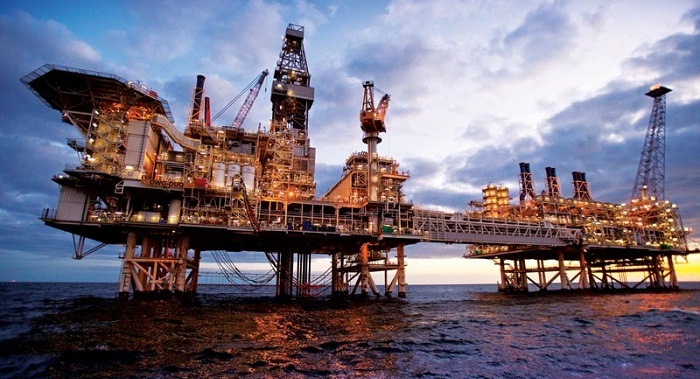BP expects production from Shah Deniz field to continue at high level

“The field has been producing at the Stage 1 plateau level over the past few years including 2015 in which we produced around 10 billion cubic meters of gas and 2.3 million tonnes of condensate,” Birrell said.
“In 2016 we expect production from the Shah Deniz field to continue at this same high level,” he added.
The reserves of the Shah Deniz field are estimated at 1.2 trillion cubic meters of gas. The contract to develop the Shah Deniz offshore field was signed June 4, 1996.
The shareholders in the contract are: BP, operator (28.8 percent), AzSD (10 percent), SGC Upstream (6.7 percent), Petronas (15.5 percent), Lukoil (10 percent), NIOC (10 percent) and TPAO (19 percent).
Birrell said that BP’s future gas plans for the Caspian sea are currently focused on developing the next tranche of gas from Shah Deniz Stage 2.
Specifically, Shah Deniz Stage 2 is set to have 26 production wells at depths of over 6,000 metres, according to Birrell. Nine of these wells have already been drilled.
“These wells will produce 16 billion cubic meters of gas per year, which will be delivered to markets across Azerbaijan, Georgia, Turkey and South Eastern Europe,” Birrell said.
The gas to be produced from the second stage of Shah Deniz field development is considered as the main source for the huge Southern Gas Corridor project.
In terms of timeline, Birrell said that the first gas from Shah Deniz-2 is targeting to be delivered to Turkey in 2018 and to by 2020 to Europe.
Paying a special attention on drilling, Birrell highlighted that drilling performance in both Azeri-Chirag-Gunashli (ACG) block of oil fields and Shah Deniz are success stories.
“Given that the Caspian basin represents some of the toughest drilling challenges in the industry, delivery of these difficult wells has required people and technology capable of tackling these challenges,” he said.
To date BP has safely drilled around 190 wells in this challenging drilling environment, according to Birrell.
“Specifically on Shah Deniz, drilling challenges in that field are related to its location in deeper waters than ACG - up to 550 meters - and the high pressures encountered in the reservoir. We have safely and efficiently drilled 145 kilometres on Shah Deniz including the deepest exploration well of 7,300 meters depth to-date drilled in the Caspian,” Birrell said.
The contract for the Azeri-Chirag-Guneshli development was signed in 1994. Shares in the contract are as follow: BP (operator) - 35.78 percent, Chevron - 11.27 percent, Inpex - 10.96 percent, AzACG - 11.65 percent, Statoil - 8.56 percent, Exxon - eight percent, TPAO - 6.75 percent, Itochu - 4.3 percent and ONGC - 2.72 percent.
The geological oil reserves on the ACG block amount to more than two billion tons. More than one billion tons of this volume account for recoverable reserves.















































